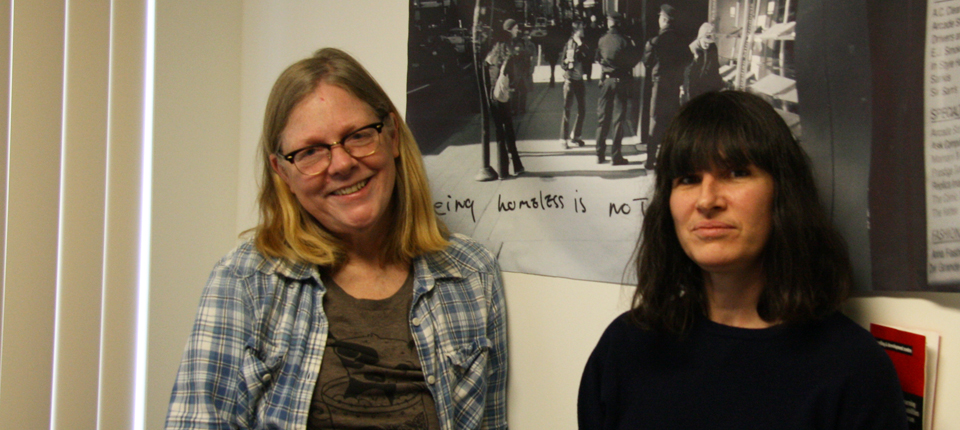How can researchers work alongside people who experience marginalization to ethically co-produce knowledge?
nancy viva davis halifax studies the institutions within which people experiencing poverty, disability, homelessness, racialization, and colonization are contained. Primacy is given to the lived experiences of members of marginalized groups; the aim is to return knowledge to the community by working and creating art alongside community members. Her community-based research is informed by her early training as a conceptual artist. A great deal of her research is located within an artists’ collective, Red Wagon, which currently is comprised of herself and LizaKim Jackson.
Inspiration
My research is shadowed by my history of poverty and rough living, what some others might call homelessness. As such, my research does not exist to explain the continued presence and effects of poverty. Rather it complicates the facts of poverty, asking us to attend and respond to persons who, parallel to their social, cultural, and economic exclusion, find their knowledge excluded from public policy. My research also asks that we attend to emotional responses and become an audience for a multiplicity of narrative truths – that we move beyond indifference.
Impact
We’re trying to collaborate with community members to create art within a social form that’s resonant. Art is a form of knowing and of knowledge.
Currently, we are part of a SSHRC-funded arts-based project working with a group of co-researchers from other Ontario universities, and co-researchers who lived at, and survived, the Huronia Regional Centre (HRC). HRC was an institution for people with intellectual disabilities (1867-2013). Our project, Recounting Huronia, uses the arts to tell stories of trauma and abandonment differently. Together we are producing a series of small books, which can be further imagined as being brought to life in a cabaret, or a series of poems, or theatrical monologues. Together the groups of co-researchers imagine, write and create a future where disability and difference might be welcome.
Highlight
We don’t perceive homelessness, disability, and poverty as problems. What we understand as problematic is political and public indifference to the violence of capitalism.
The arts we engage with address indifference and facilitate action. The use of the arts in spaces of exclusion can be transformative. For example, at a shelter, this can be found in how we have learned to work without an abundance, at times developing an ethics of sharing. The art made circulates as gifts, creating a social economy. Art begins to be found not only in the objects but also within the social fabric of arts relationality. Art becomes understood as temporal collaboration, and dialogue, as the relationships that form and re-form.
What’s next?
Our research doesn’t really make “breakthroughs,” but we continue to engage, often slowly, in dialogue; from this, questions arise, as well as research directions. Why does our culture refuse to admit to its colonial history? How does capitalism differentiate between bodies? What about our own mad and unruly researcher bodies – how are these present in the work?
Our research relies on principles of being present, of listening, of supporting difference and remembering that there are many, too many in Canada, whose days are filled with the ordinary and old violence of poverty, homelessness, indifference...


